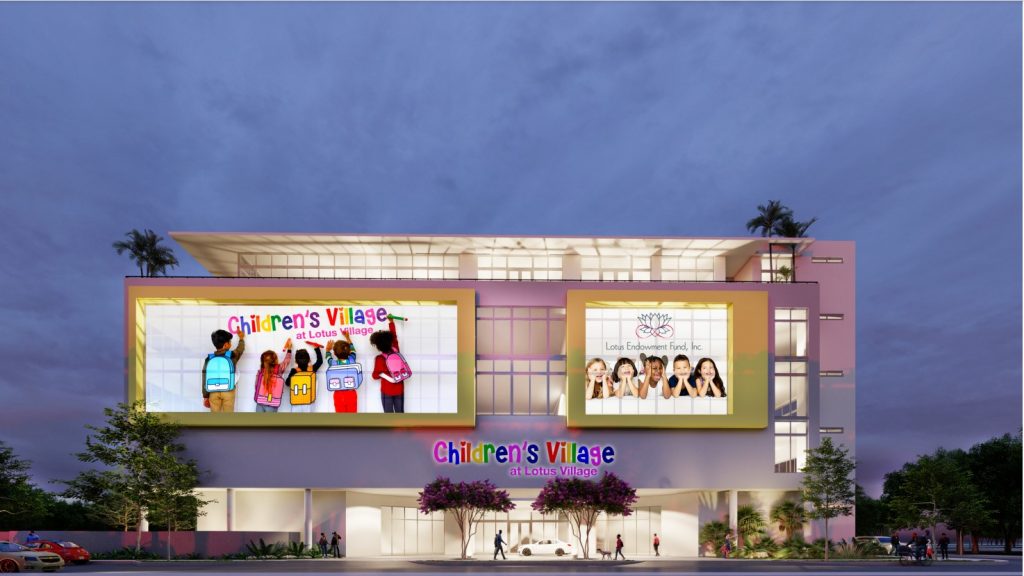As Miami contends with a housing crisis that has earned the city the undesirable status of being the least affordable place to live in the United States, elected officials and community leaders are scrambling to identify solutions.
The possibilities involve everything from zoning changes that would allow for more real estate density, to converting hotels into makeshift shelters and encamping individuals experiencing homeless in a public park on Virginia Key.
While these ideas have sparked community debate, Miami’s nonprofit Lotus House – the nation’s largest shelter exclusively serving women, children, and youth – has been advancing its mission of ending homelessness, with more than 80 percent of its guests exiting the shelter system altogether following their stay.

Opened in 2018, the organization’s flagship shelter, named “Lotus Village,” was built with private dollars raised by individuals, families, corporations, and institutions. Today, Lotus Village is operated by a coalition of nonprofits and service providers, with up to 500 women and children calling the shelter home each night.
Much more than four walls and a source of warm meals for those experiencing homelessness, Lotus Village delivers holistic services ranging from career training for women and healthcare for children, to restorative therapies such as art, yoga, and meditation.
Buoyed by the success of Lotus Village during its first five years (and its ability to navigate the challenges brought on by the pandemic), Lotus House is setting out to raise the bar for itself once again. The nonprofit recently unveiled plans to develop a new facility – called the “Children’s Village” – centered around the needs of children of all ages, including those living at the shelter along with members of the surrounding community. The Miami Herald recently featured the work of Lotus House, and previewed its expansion plans.
The $20 million Children’s Village, situated directly across the street from Lotus Village, will include five floors housing classrooms, supportive services and programming for children, wellness resources, and a long-awaited playground.
“We developed Lotus Village with the goal of ending homelessness, and the data tells us that our model is working. At the Children’s Village, our mission will be preventing homelessness by focusing on the educational, therapeutic, and social needs of children beginning at a young age and continuing through high school,” explains Lotus House Executive Director and Founder Constance Collins.
Plans for The Children’s Village are informed by years of research into the needs of children, with findings indicating that children who experience homelessness in their youth are far more likely to do so in adulthood.
Lotus House has acquired the land for The Children’s Village, and a capital campaign is now underway to raise the private funds needed to build, operate, and maintain the new center. The organization has already secured the support of several consultants who are guiding the project on a pro-bono basis, including architects Behar Font, Miami law firm Bilzin Sumberg, general contractor Civic Construction, and longtime benefactor Martin Margulies, a real estate developer and art collector who has been instrumental to the shelter’s growth to date.

“So many cities think homelessness is an overwhelming problem that will take huge amounts of money to fix. But our work is proving that there is enough money to solve it,” Margulies told the Miami Herald.
Lotus House vice chair John Sumberg agrees, and believes that the success of Lotus House offers other organizations a blueprint for addressing homelessness in their respective communities, “Lotus Village has become the leading national model showcasing best practices that other shelters look to as an example,” Sumberg told the Herald. “Lotus took a long-term, holistic approach to our most vulnerable people, not a holding-facility approach. And we’ve done it with innovative funding in a city without major corporate sponsors. If Miami can do it, Los Angeles and New York can do it.”
As policymakers weigh proposals aimed at making Miami more affordable, Lotus House has developed innovative solutions which can be replicated at scale, both in South Florida and beyond. Best of all, the shelter’s model alleviates the need for significant public spending by leveraging private dollars. This is becoming even more important as companies and executives gravitate toward South Florida and put their philanthropic dollars to work.
To learn more about Lotus House and support the shelter’s work, join us by sponsoring the nonprofit’s annual fundraiser, “Seeds of Change,” set to take place on November 3rd at the Margulies Warehouse in Wynwood.
In the meantime, check out the Herald’s video spotlighting Lotus Village’s programs and impact, below.








 See More Blogs
See More Blogs
Comments